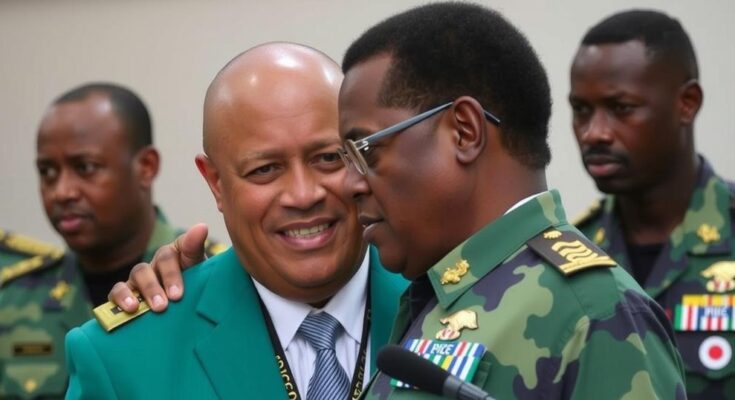Uganda’s Operation Shujaa in the DRC has achieved mixed results in combatting the ADF while facing accusations of supporting rival rebels like M23. Despite some local improvements in security, the ADF maintains its threat level, having extended its geographical reach. Uganda’s mission is complicated by the need to balance economic interests and regional stability in the context of growing tensions with Rwanda.
In the past three years since Uganda initiated military operations in the eastern Democratic Republic of Congo (DRC) to counter the Allied Democratic Forces (ADF), there have been both achievements and significant challenges. Uganda’s Operation Shujaa, launched in cooperation with Congolese troops, has resulted in the displacement of ADF from key territories, enhancing security for some local residents. Despite these gains, persistent allegations have emerged regarding Uganda’s covert support for rival rebel factions, such as M23, resulting in skepticism about its true intentions in the region.
The ADF, responsible for approximately 1,000 civilian deaths this year alone, remains a potent threat, even as it has been compelled to operate in less suitable conditions due to Ugandan military pressure. Regions that previously faced intense conflict, such as Beni, have seen improvements, with the lifting of curfews and schools reopening. However, the shift of ADF operations westward and the group’s continued targeting of civilians underline its resilience.
Accusations from UN experts that Uganda is facilitating M23’s movement have compounded criticism of its operations in the DRC. These claims have sparked calls from DRC President Félix Tshisekedi for transparency and commitment from Uganda regarding their military cooperation. Observers note that Uganda’s military endeavors appear concentrated near its border, raising doubts about its broader commitment to neutralizing ADF.
Economically, Operation Shujaa is crucial for Uganda, given the region’s gold trade and infrastructure projects aimed at enhancing trade routes. Yet, as Rwanda’s backing of M23 grows, Uganda must navigate a delicate balance: safeguarding its economic interests while quelling regional tensions. Belgium-based researcher Kristof Titeca emphasizes that Uganda’s strategies are adaptable yet consistently focused on self-preservation.
In summary, Uganda’s mission in the DRC reflects a complex mix of military, economic, and political factors, prompting scrutiny of its true goals in an unstable region.
Uganda’s military involvement in the DRC traces back to its attempt to suppress the ADF, a group linked to ISIS that has historically wreaked havoc in eastern Congo. Operation Shujaa was designed not only to enhance security conditions but also address economic interests, notably in securing trade routes. Over time, allegations of Uganda’s undercover support for rival factions such as the M23 rebel group have arisen, leading to a questioning of its engagement strategy and overall objectives in the region.
In conclusion, Uganda’s military operation in the DRC illustrates the complexities of regional conflicts where security operations are entangled with political and economic motivations. While there have been measurable successes in diminishing the ADF’s hold, the ongoing allegations of double-dealing and tactical mismanagement suggest that deeper issues linger. As Uganda continues to navigate its relationships with both the DRC and Rwanda, the long-term implications of its strategy remain uncertain.
Original Source: www.rfi.fr




